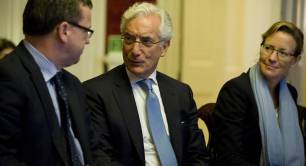Bangladesh Exclusive: the vital steps to unlock impact investing
Renewable energy and agriculture are among the sectors offering "great potential" for a strong impact investing market to develop in Bangladesh, but policy and awareness raising are vital to unlock this type of responsible capital. Ellie Ward reports exclusively from Dhaka
Investment readiness programmes, the introduction of a legal entity for social enterprises and a marketing push must all take place to unlock the potential of impact investing in Bangladesh, delegates at last week's British Council Social Enterprise Policy Forum in Dhaka concluded.
Among those areas in which impact investing has the greatest potential to make sustainable social and environmental change are renewable energy and agriculture.
Dureen Shahnaz, founder of impact investment organisations Shujog and IIX, which work across South Asia, told Pioneers Post: “There are a lot of investment opportunities in Bangladesh which offer great potential for financial return but at the same time high social return.”
Addressing the Forum, Fahim Ahmed, interim chief of party at SEAF Bangladesh AgriVentures, said: “In the renewable energy technology sector we have a very well developed ecosystem which at the top is funded by various development agencies with interventions from the central bank and contributions from the microfinance institutions such as Grameen and Brac.
“The reason this ecosystem works is because there are multiple actors across that system who are appropriately incentivised. They are all working towards the common goal of addressing the 45% to 48% of the population that is not even connected to the grid.”
Ahmed also said that there was “great opportunity” in the food and agriculture sector in particular, which is “significantly underserved by traditional banks and other financial institutions” because it is very expensive for commercial banks and institutions to operate in such remote and rural markets.
He continued: “The size of investments required because of the fragmentation of our land means that we only have around one third of an acre as the average farm size. It becomes very expensive for banks and other mainstream financial institutions to serve this space so we have to come up with innovative approaches that work with existing market players.”
Across the world there has been a gathering momentum around impact investment. Interest has spiked in the past five years partly as a result of the introduction of a Social Impact Investment Taskforce by David Cameron at the G8 Social Impact Investment Forum in June 2013.
At the Forum in Bangladesh, Adrien Jean, partner at global development advisory firm Dalberg, said that while a lot of impact investing focus in South Asia had been on India, a lot less attention had been "paid to other countries in the region including Bangladesh and Pakistan, where there are very large populations, very dynamic impact investing sectors”.
Looking ahead, there was general acknowledgement among delegates that new policies and impact investment programmes needed to be introduced in order to really mobilise Bangladesh’s impact investing market.
Vice president of the Social Entrepreneurship Unit of Malaysian Global Innovation and Creativity Centre (MaGIC) Chan Yee Hon told Pioneers Post about some of the conclusions reached in the impact investment breakout session he chaired.
He said: “A lot of Bangladesh’s social enterprises are not investment ready so investment readiness programmes need to be in place. We also concluded that a lot of Bangladesh’s social enterprises lack the fundamental foundations needed for investment such as good structuring and governance.”
A lot of Bangladesh’s social enterprises lack the fundamental foundations needed for investment such as good structuring and governance.
Access to investment was also considered an obstacle in the development of an impact investment market. “We need to bridge the gap between social enterprises and impact investors so awareness raising around who are impact investors, where are they, what are they looking for and how do we access them is needed,” Yee Hon said.
Issues around awareness raising and better collaboration between impact investors and social entrepreneurs are clearly not specific to South Asia. In January this year, an OECD report concluded that more needs to be done to address social investment “illiteracy” globally.
Technology and industry director at the OECD Karen Wilson said at the launch of the report: “We were really surprised by how much (impact investing) is out there but it is in little pockets and the key is to try to tap into that.”
Photo credit: Nizam Uddin



